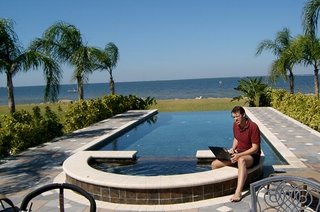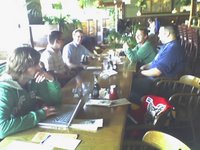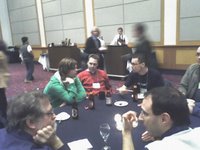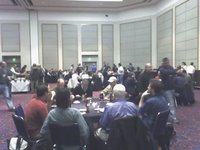I'm not sure why that is so but I like it here at my uncle's family's house outside Tampa, Florida. It could be the weather, almost 30 degrees Celsius while it's almost freezing(!), though that is extreme, back home in Sweden and the fall-storms raging there. Or it could be the nice company, especially the little attention stealer that my lovely half year old cousin is. Or it could be the totally relaxed atmosphere after a busy week at a conference. Having a drink handed to you by your nice uncle coupled with wireless Internet at your fingertips in the pool. The hottub/jacuzzi next to the pool is sort of nice too, especially if you consider that we sat in the hottub having a great time and looking up at the star filled sky last night. The incredible sunsets perhaps?
I'm not sure where to stop, nice food, nice company, lovely weather and no work. The view is rather OK too, including the skylines of two cities across Tampa Bay. One is St Petersburg a bit to the west (a little to the left as seen from the house) and the other is Tampa a little further east (to the right, not clearly seen in these pictures).
Above: Me at the pool.
Above: Sunset as seen from the house/pool with the city of St Petersburg's skyline.
After the sunset








